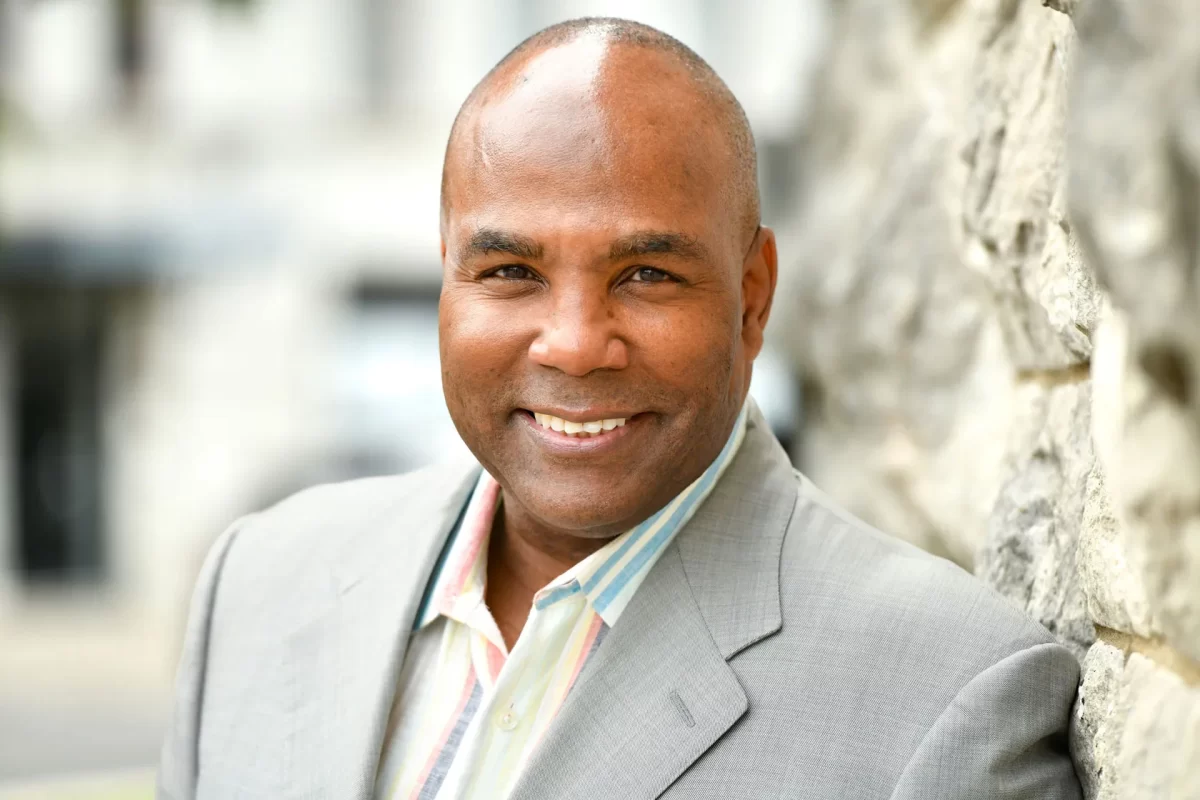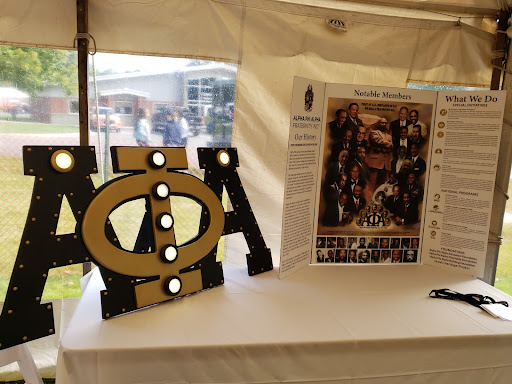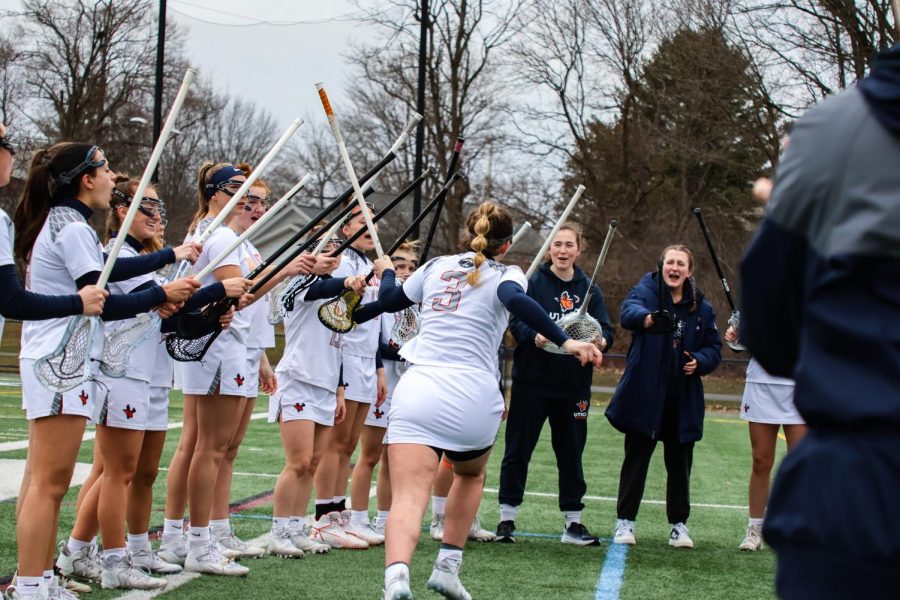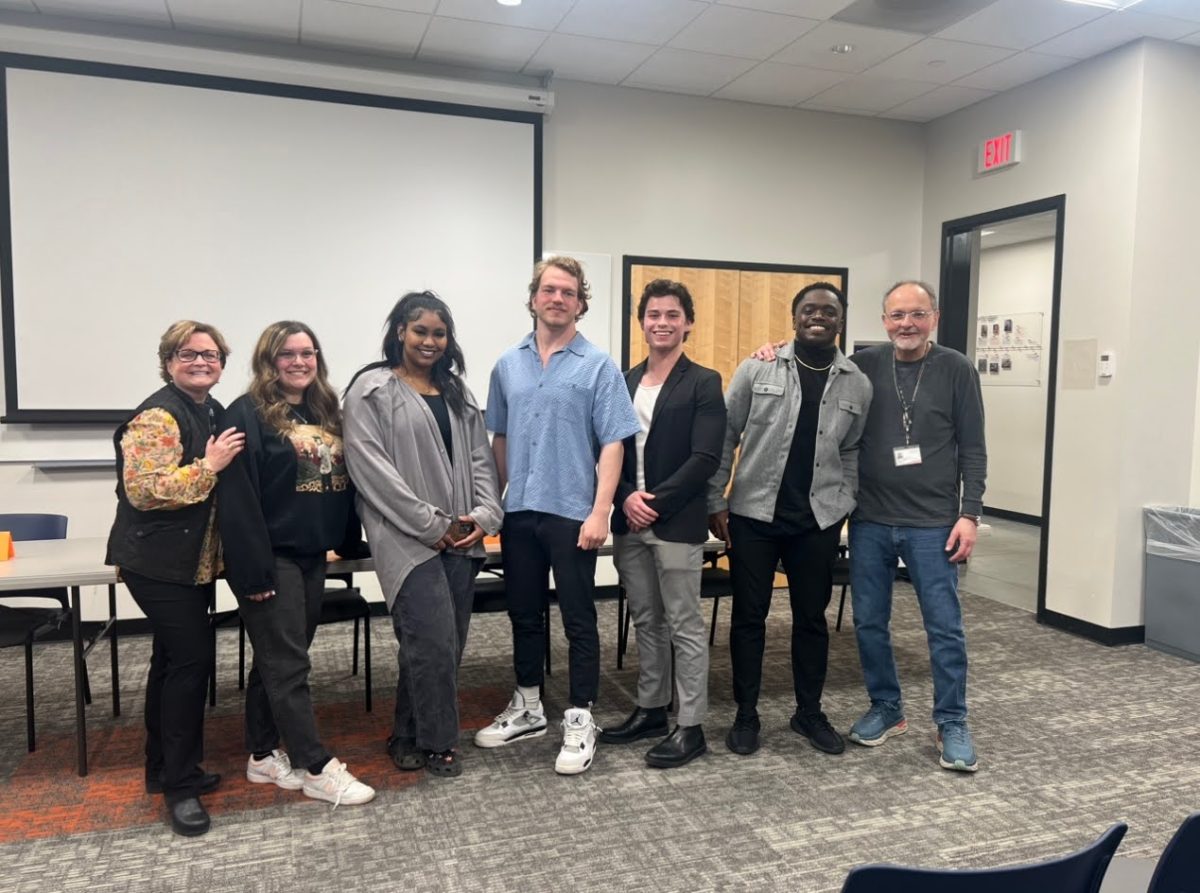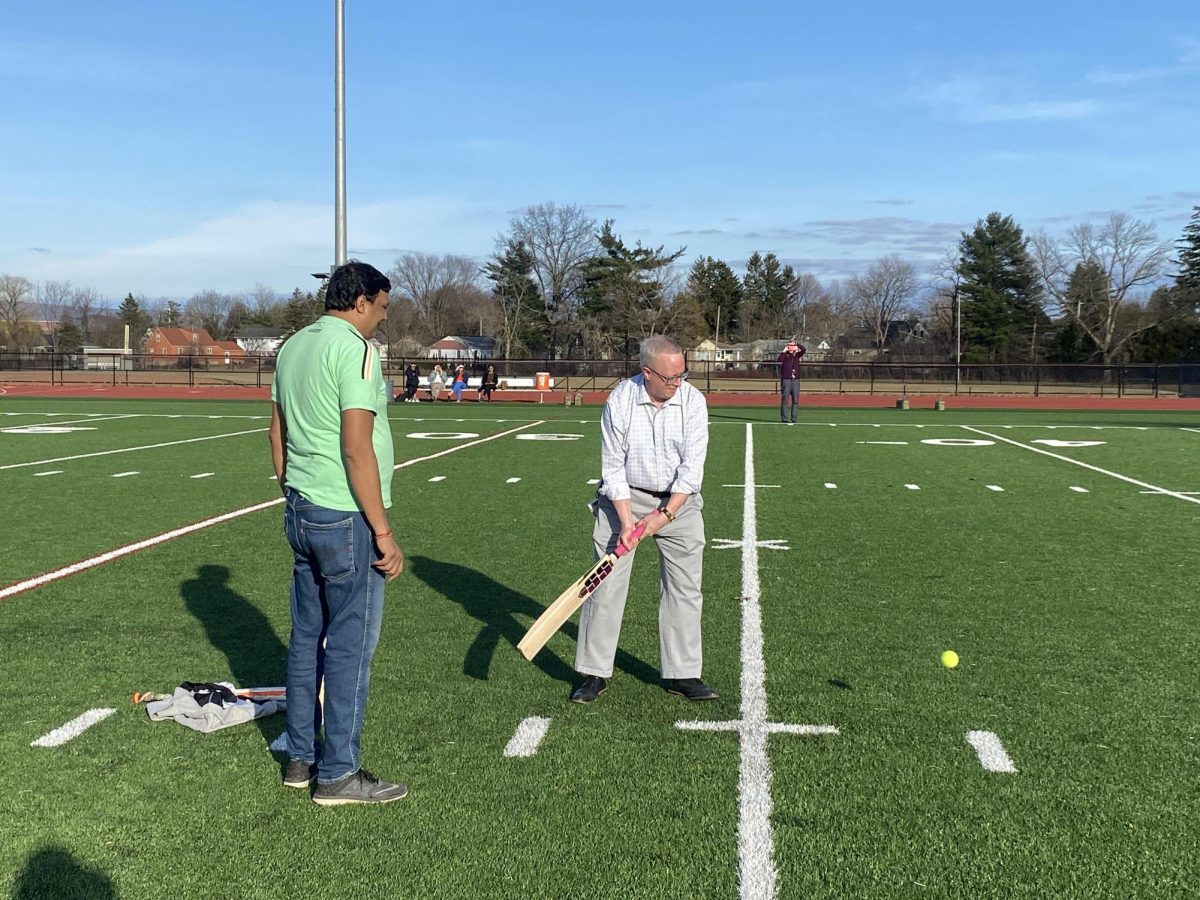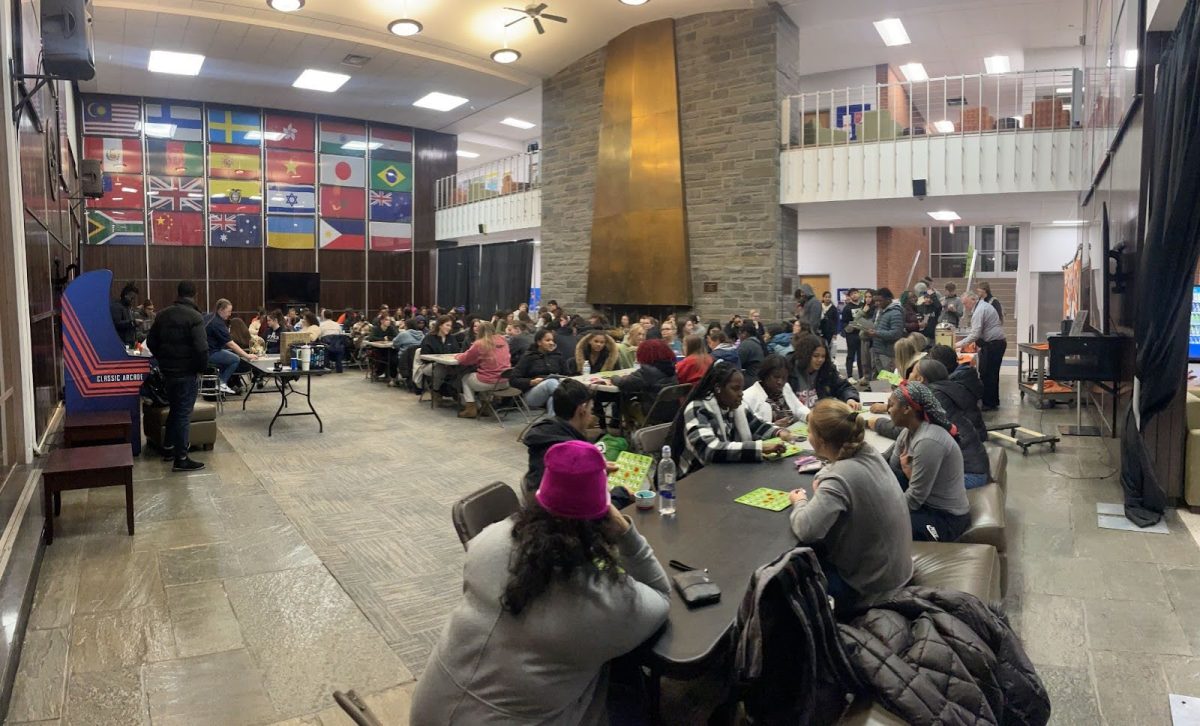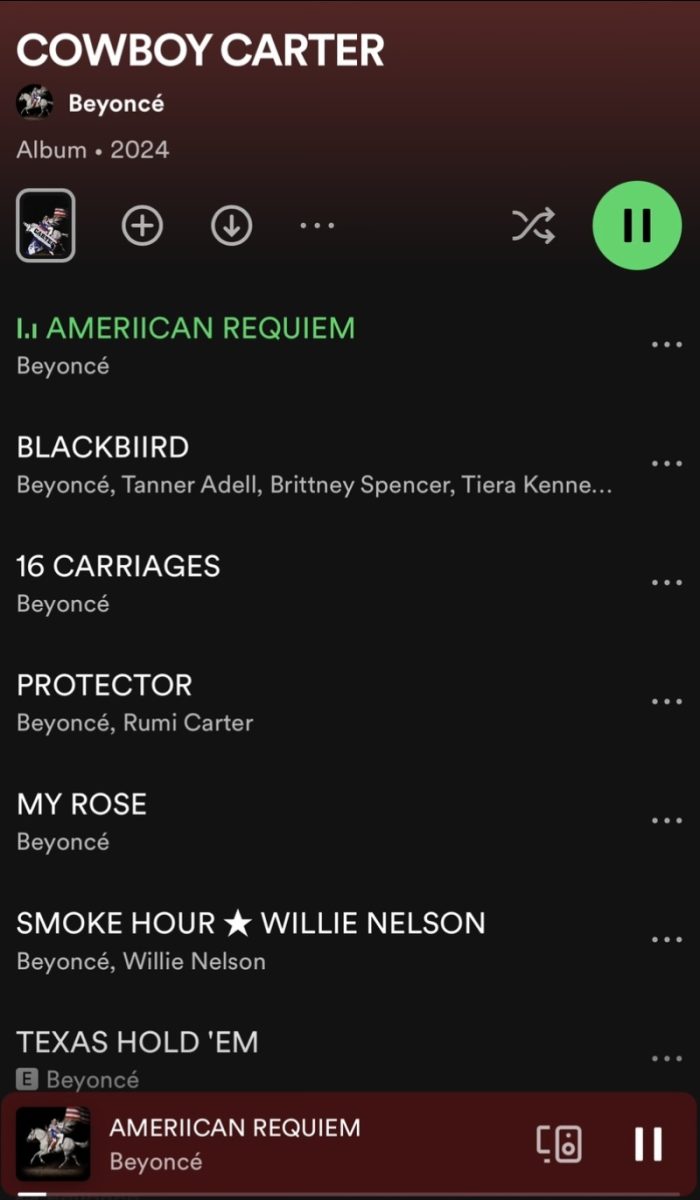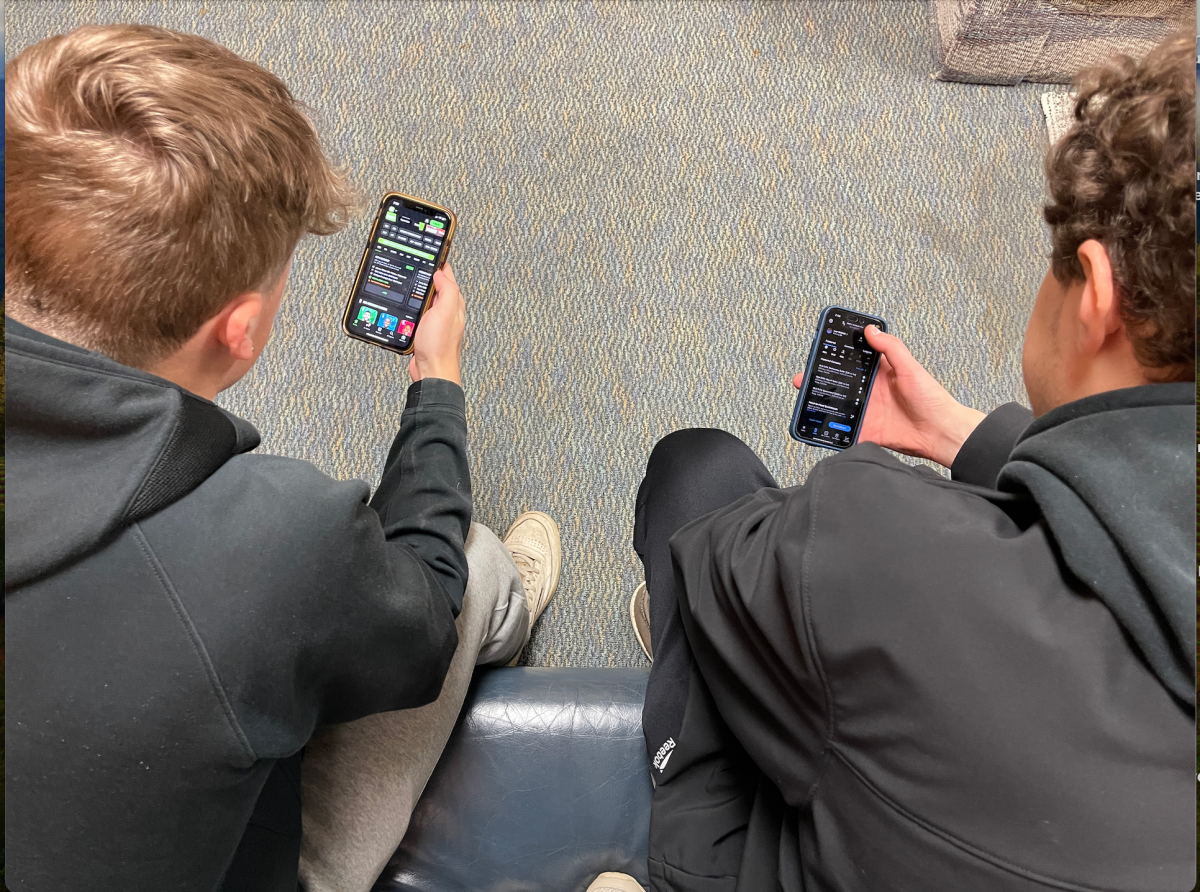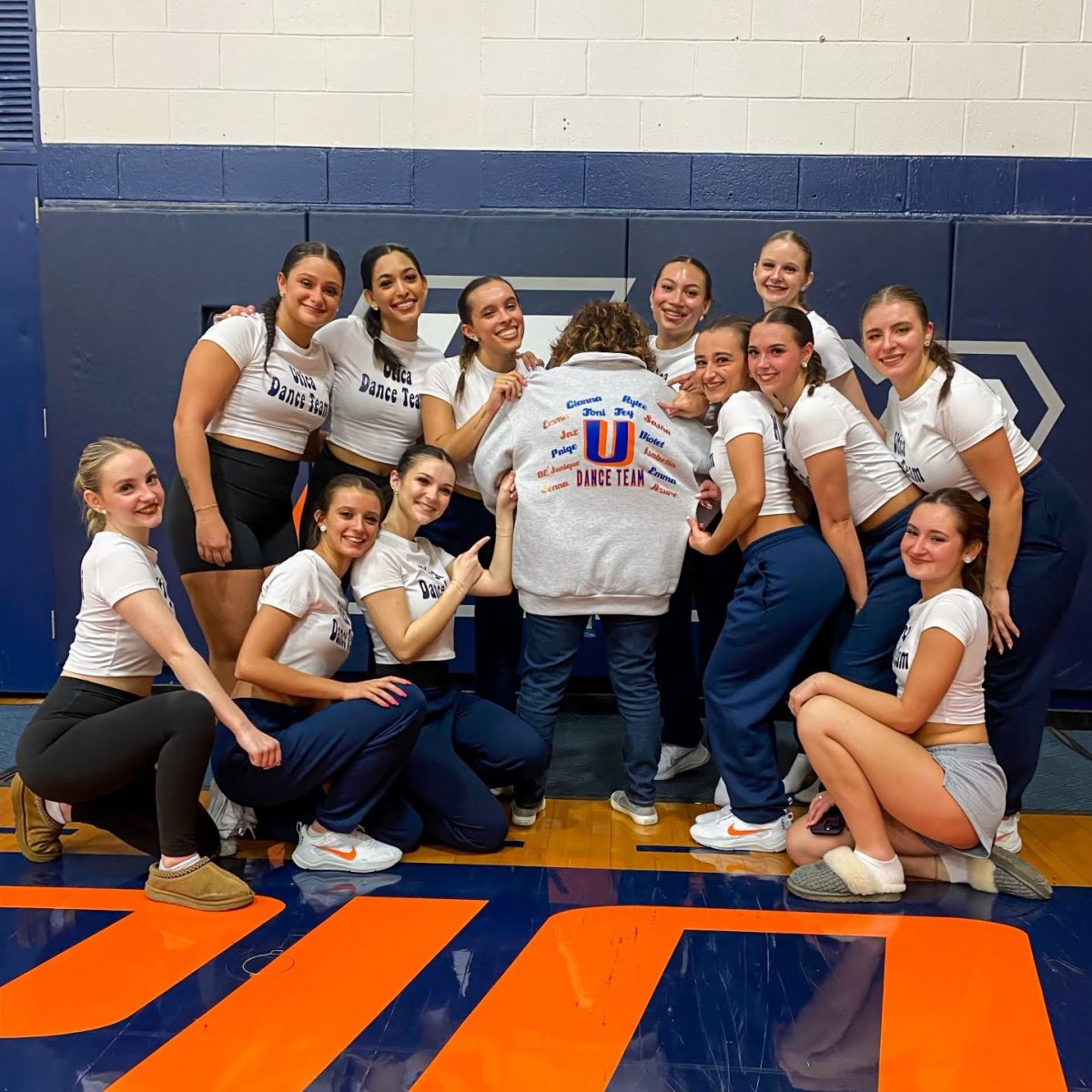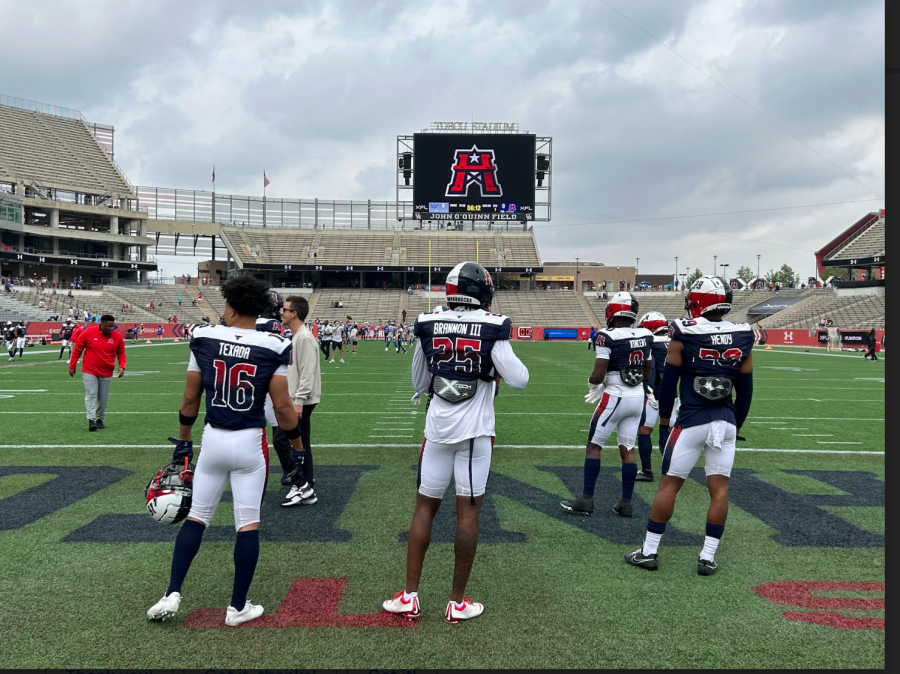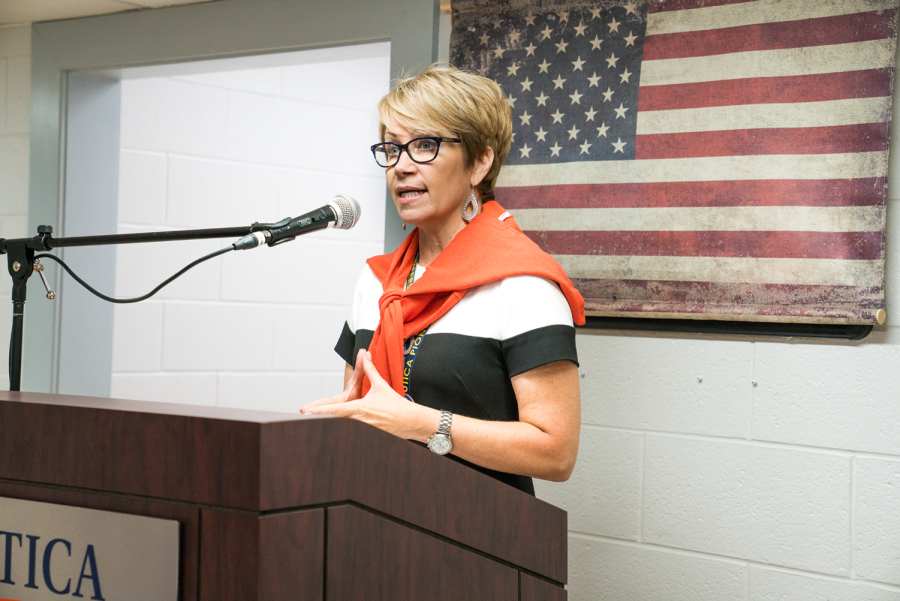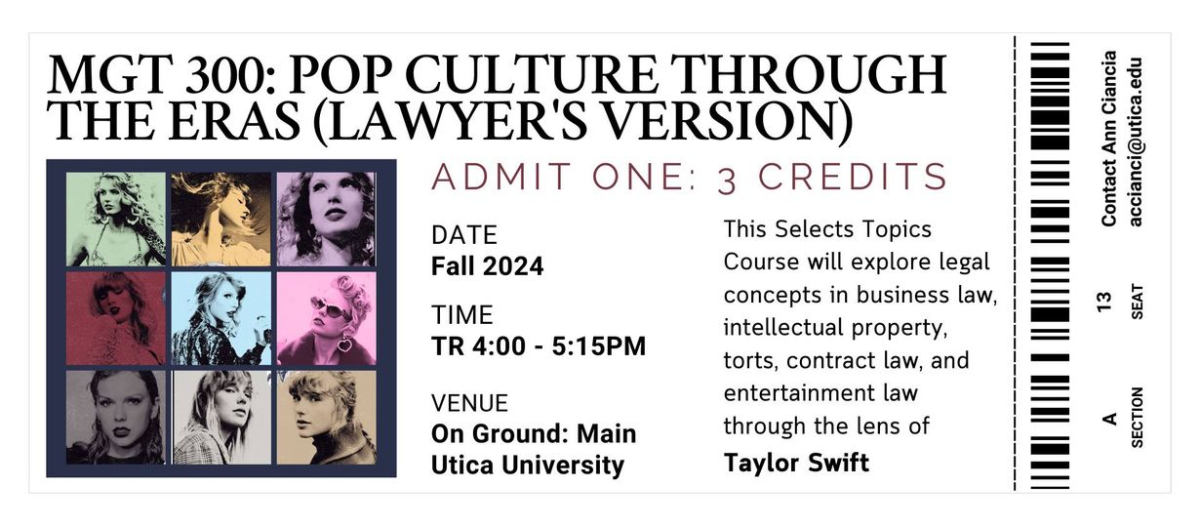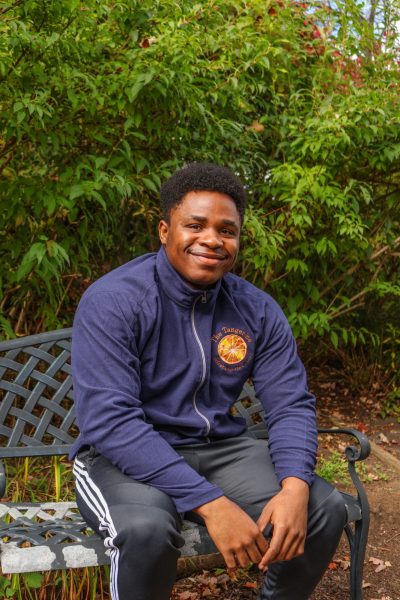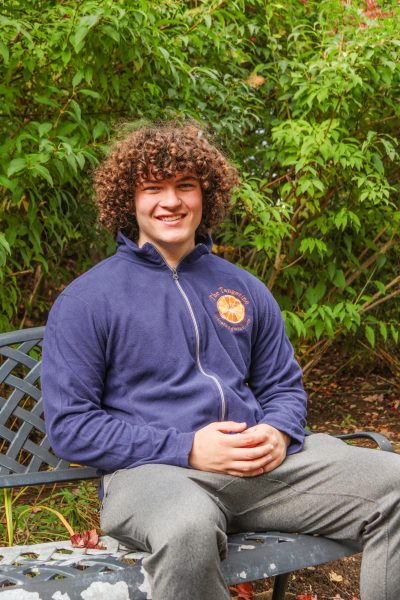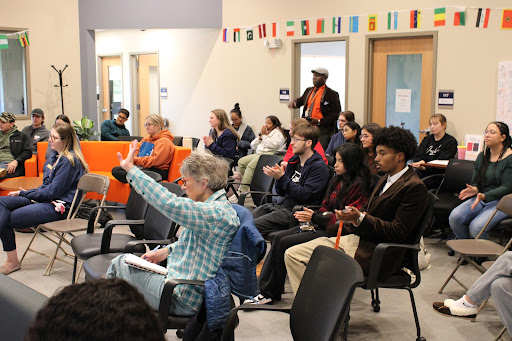
Faculty members from Utica University and Bar-IIan University, one of the largest research universities in Israel, led a PioTalk discussion on Friday, Oct. 13 to address the ongoing Israel-Hamas war.
The Diversity, Equity, and Inclusion Collaborative hosted the event, which drew about 60 attendees, and was held at the Francis A. Wilcox Intercultural and Student Organization Center.
Alon Levkowitz, a senior lecturer and chair of the Social Science and Civics department at Bar-IIan, said what happened on Oct. 7, when Hamas launched its surprise, violent attack on Israel, from the Israeli point of view links to “a nation that needs psychology therapy” to overcome its current crisis.
“If you attack military bases one would expect that this would be some kind of a legitimate act. But when you attack… civilians this is unacceptable,” Levkowitz said. “This is crimes against humanity.”
According to Levkowitz, because military bases were not attacked the ongoing threats to civilians have created severe trauma for Israelis.
“If we’re talking about a war against military sides this is one would say a legitimate war,” Levkowitz said. “But when you attack civilian cities that’s a different war game.”
Israel has begun an operation against Hamas and Jihad military sites, facilities and infrastructure, Levkowitz said, but faces a common problem much like other democracies fighting against terrorist organizations because they are using civilian sites to hide missiles in areas like hospitals.
“[It] is a very problematic issue to intercept these launchers and we face a huge problem,” Levkowitz said. “It’s gonna be a dirty war and civilians [will be] hurt in this war.”
Levkowitz said Israel has told civilians occupying areas in the Gaza Strip to evacuate to allow the military to attack. Hamas on the other hand, Levkowitz said, is telling civilians to stay.
“This is a very problematic issue [and] becomes more complicated,” Levkowitz said. “Because other militant organizations from [the] northern part of Israel and other militant organizations in Syria might decide to join the war.”
Levkowitz said the money Hamas invested into building facilities — money given by states and organizations to build civilian infrastructure in Gaza — was wasted on building their “military might.”
“If all this money [billions],” Levkowitz said. “Would have been used for civilian use; it would have been a different ball game.”
Since the attack, over 2,000 people have been killed, according to The Wall Street Journal. USA Today reported that though individuals with or without ties to Israel might not be affected directly by the ongoing violence — the traumatic images and news coverage — mental health experts say can still cause traumatic stress.
Kaylee Seddio, assistant professor of psychology, said the motive behind engaging in extremist behavior is the idea of being left out. This creates an in-group out-group mindset resulting in a compromised self-feeling and identity.
“Sometimes [the] response is to become radicalized,” said Seddio, who has worked with people who’ve expressed trauma ranging from refugees in the European region to sex trafficking victims. “[And] to engage in some of these extreme behaviors… the motivation behind that is often this feeling of yourself being minimized in some way.”
Ariel Gratch, assistant professor of Communication and Media who conducted research in Israel and studied how Jews and Israelis explained their cultural identities, said discussion events are important for college campuses and the pursuit of knowledge.
“Rarely in life do we find ourselves in situations like this, where we can share diverse stories, opinions, and ideas, some of which might be difficult to hear,” Gratch said. “If we can do this in an ethical way and with the goal of understanding and empathy, I think it’s one of the most important things we can do at a university.”

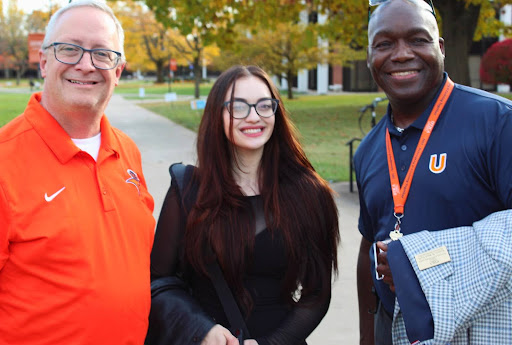

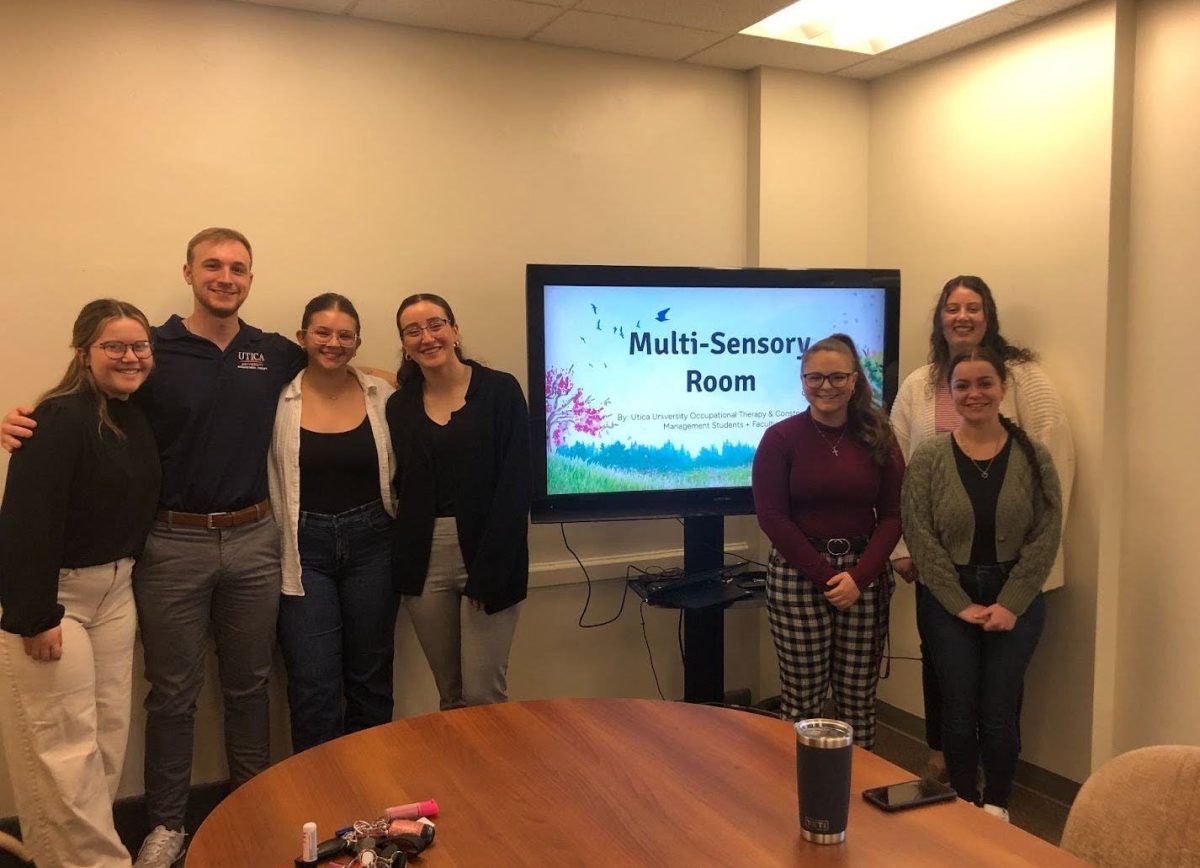



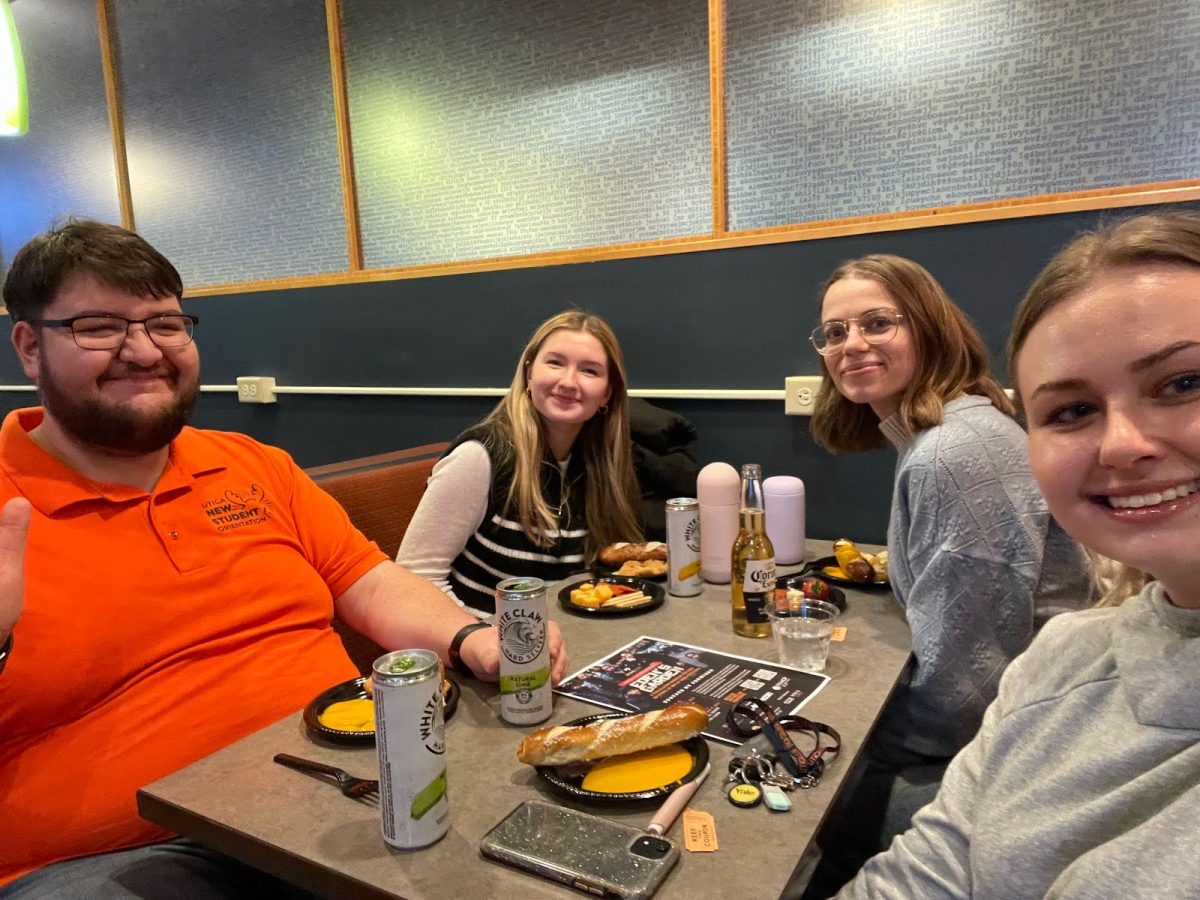










![President Todd Pfannestiel poses with Jeremy Thurston chairperson Board of Trustees [left] and former chairperson Robert Brvenik [right] after accepting the universitys institutional charter.](https://uticatangerine.com/wp-content/uploads/2023/10/unnamed.jpeg)




